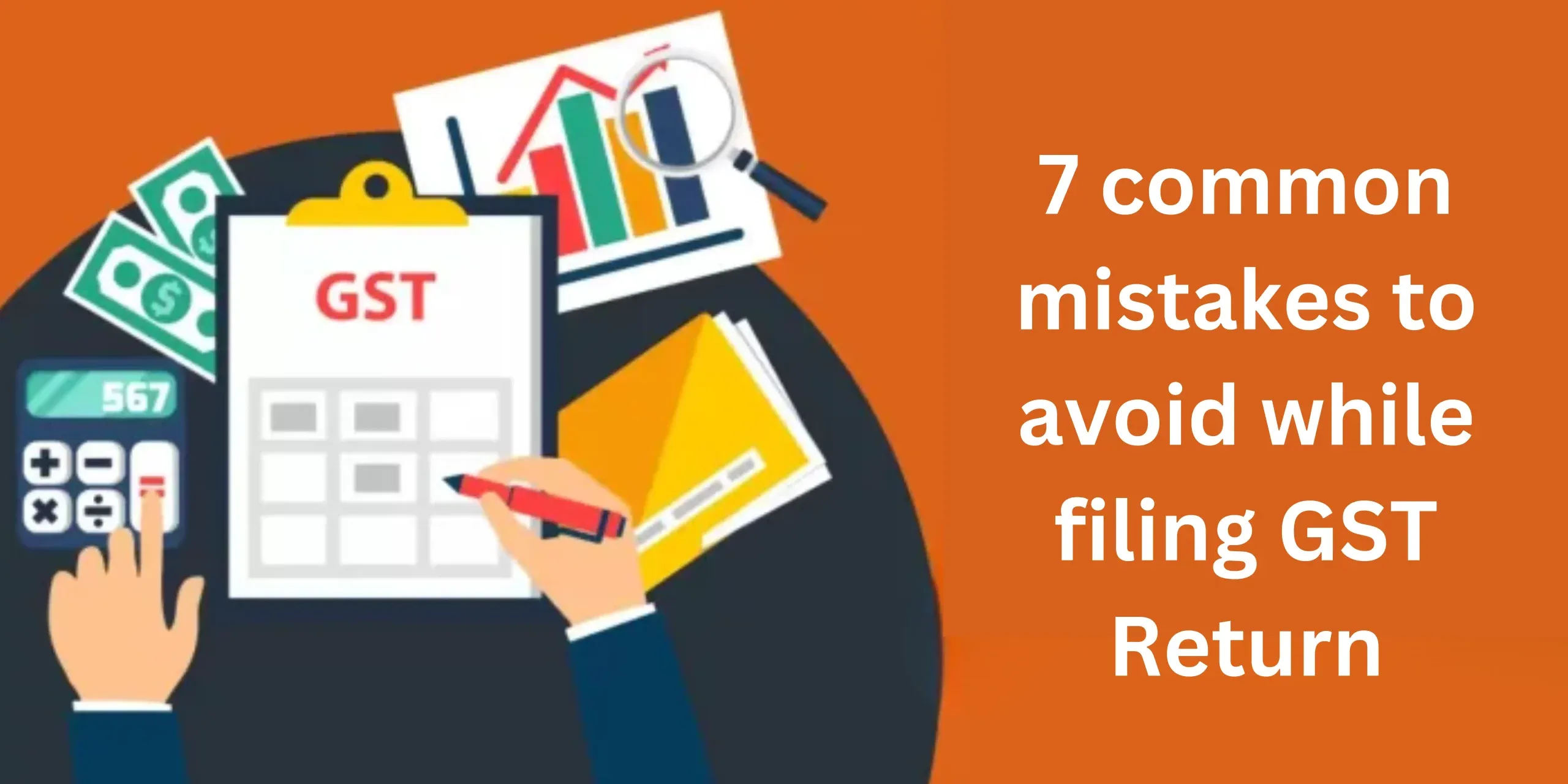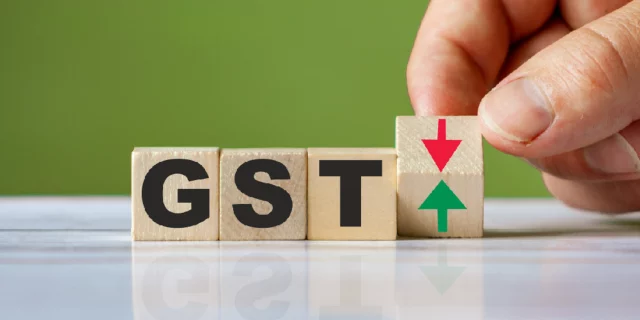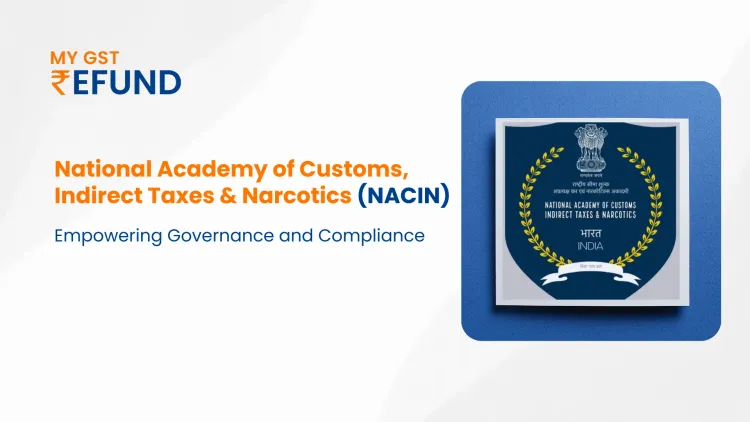7 common mistakes to avoid while filing GST Returns
Published on: Fri Jun 23 2023
Introduction:

Ensuring precise filing of Goods and Services Tax (GST) returns is vital in order to prevent unnecessary reconciliation and maintain compliance. It is important to acquaint oneself with common mistakes to avoid while filing GST returns.
This article aims to give an introduction to GST returns, examine the various types of returns, and emphasize crucial errors to avoid for a smooth and trouble-free filing process.
Types of GST Returns:
The Goods and Services Tax (GST) encompasses a range of return forms, which include GSTR-1, GSTR-3B, GSTR-4, GSTR-5, GSTR-5A, GSTR-6, GSTR-7, GSTR-8, GSTR-9, GSTR-10, GSTR-11, CMP-08, and ITC-04. However, the applicability of these returns varies depending on factors such as the type of registration and turnover. Additionally, taxpayers with a turnover exceeding INR 5 crore are required to submit a self-certified reconciliation statement using Form GSTR-9C. It is crucial for taxpayers to comprehend which returns are applicable to their business to ensure accurate and punctual filing.
KEY MISTAKES TO AVOID:
1. Inaccurate Invoice Details
One of the most common mistakes businesses make while filing GST is providing inaccurate invoice details. To ensure compliance and avoid penalties, it is crucial to double-check all invoice information, including the seller’s and buyer’s GSTIN, invoice number, date, and value. By meticulously reviewing these details, you can prevent any discrepancies that may arise during the filing process.
2. Failure to Reconcile Input Tax Credit (ITC)
Another frequent error businesses encounter is the failure to reconcile Input Tax Credit (ITC) while filing GST. It is essential to match the invoices uploaded by your suppliers with the purchases made by your business. Any discrepancies in claiming ITC can lead to additional tax liabilities and unnecessary complications. By regularly reconciling your ITC, you can ensure accurate reporting and maximize your tax benefits.
3. Incorrect HSN or SAC Codes
HSN (Harmonized System of Nomenclature) and SAC (Services Accounting Code) are essential codes used to classify goods and services for GST purposes. Mistakes in assigning the appropriate HSN or SAC codes can result in incorrect tax calculations and non-compliance issues. To avoid such errors, it is advisable to refer to the official GST portal or consult professionals who can guide you in accurately determining the applicable codes.
4. Late Filing or Non-Filing of Returns
Timely filing of GST returns is crucial to maintain compliance and avoid penalties. Many businesses make the mistake of either filing their returns late or failing to file them altogether. Such oversights can lead to hefty fines and legal complications. To ensure you meet the filing deadlines, it is recommended to set up reminders, establish a streamlined process, and leverage technology tools that automate return filing.
5. Lack of Documentation
Maintaining comprehensive and up-to-date documentation is essential for a smooth GST filing experience. Neglecting proper documentation can result in challenges during audits and lead to potential penalties. Make sure to organize your invoices, purchase records, and any other supporting documents systematically. By having a well-organized record-keeping system, you can avoid unnecessary stress and successfully demonstrate compliance when required.
6. Ignoring Reverse Charge Mechanism (RCM)
The Reverse Charge Mechanism (RCM) is an important aspect of GST, particularly in cases where the supplier is not liable to pay taxes. Many businesses overlook their obligations under RCM, leading to non-compliance issues. It is vital to identify transactions that fall under RCM and ensure the necessary tax payments are made accordingly. By staying vigilant and understanding the applicability of RCM, you can avoid penalties and maintain compliance.
7. Lack of Expert Guidance
Perhaps the most critical mistake businesses make is neglecting to seek expert guidance while filing GST. The GST landscape is complex and subject to regular updates and changes. Engaging professionals with in-depth knowledge and experience in GST can provide you with invaluable insights, help you navigate legal requirements, and optimize your tax planning strategies. By leveraging expert guidance, you can stay ahead of the curve and ensure a seamless GST filing process.
Conclusion
In conclusion, the successful filing of GST requires careful attention to detail and a proactive approach to compliance. By avoiding the common mistakes we’ve outlined in this article, you can significantly enhance your chances of a smooth and error-free GST filing experience. Remember to review invoice details meticulously, reconcile your Input Tax Credit, assign correct HSN or SAC codes, file returns on time, maintain comprehensive documentation, understand and fulfill your obligations under RCM, and seek expert guidance when needed. By implementing these best practices, you can not only outrank other websites but also establish yourself as a reliable and compliant GST filer.
Are you Looking for GST Refund Service? Mygstrefund.com offers GST refunds on business, exports, and many more if your GST application is rejected. Get in touch with us today.
Related Posts





